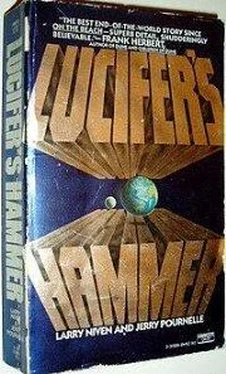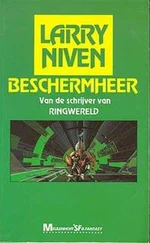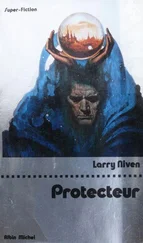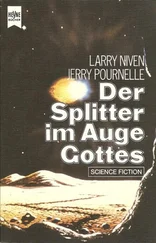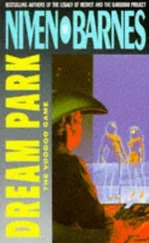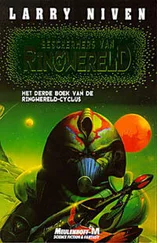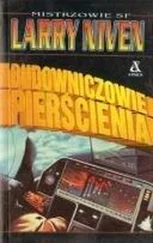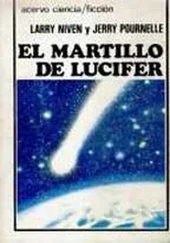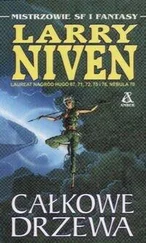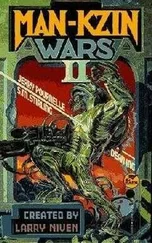“And your own people?”
Barry shrugged. “You know, nobody thinks it’s remarkable that police and firemen are dedicated to their work,” he said. “They don’t hear so much about power workers. They’d think different if they ever saw one of our apprentices standing up to his waist in oil to turn a valve, or a lineman up on a pole in the middle of an electrical storm. We’ll be on the job, Mrs. Gunderson. If they’ll just let us.”
The wind was warm and the skies clear in the Houston suburb of El Lago. The rainy season had ended, and a hundred families had come out into their backyards. The local Safeway was almost sold out of Coors beer.
Busy, hungry, and happy to be home for a whole weekend, Rick Delanty scooped hamburgers off the grill and slid them between buns. His fenced backyard was warm and smoky and noisy with a dozen friends and their wives. From the distance they could hear the children shouting as they played some new game. Children get used to glory, even if they don’t see it very often, Rick thought. Having Daddy home wasn’t such a big deal to them.
“…nothing new about the idea,” his wife was saying. “Science fiction writers have been talking about big space colonies for decades.” She was tall and very black, and she wore her hair in the tiny braids called corn rolls. Delanty could remember when she straightened her hair.
“For that matter, Heinlein wrote about them,” Gloria Delanty said. She looked to Rick for confirmation, but he was busy at the grill, and remembering his wife when they were both students in Chicago.
“It is new,” said a member of a very exclusive club. Evan had been to the Moon — almost. He’d been the man who stayed in the Apollo capsule. “O’Neill has worked out the economics of building these giant space colonies. He’s proved we can do it, not just tell stories.”
“I like it,” Gloria said. “A family astronaut project. How do we sign up?”
“You already did,” Jane Ritchie said. “When you married the test pilot there.”
“Oh, are we married?” Gloria asked. “I wonder. Evan, can’t you people in the training office ever manage to keep a schedule?”
John Baker came out of the house. “Hey, Rickie! I thought I had the wrong house. There wasn’t any sign of action from out front.”
There was a chorus of greetings, warm from the men who hadn’t seen Colonel John Baker since he went off to Washington, not so warm from the women. Baker had done it: got divorced after his mission. It happened to a lot of the astronauts, and having him back in Houston set the others to wondering.
Baker gave them all a wave, then sniffed. “Do I get one of those?”
“I’ll take your order, sir, but unless there’s a cancellation… ,,
“Why is it you never serve fried chicken?”
“I’m afraid of being stereotyped. Because I’m—
“Black,” Johnny Baker said helpfully.
“Eh?” Rick looked at his hands in apparent dismay. “No, that’s just hamburger grease.”
“So who are they picking for the big comet-watching flight?” Evan demanded.
“Damned if I know,” Baker said. “Nobody in Washington’s talking.”
“Hell, they’re sending me,” Rick Delanty said. “I have it on good authority.”
Baker froze with his beer half opened. Three other men nearby stopped talking, and the wives held their breath.
“I went to a fortune-teller in Texarkana, and she—”
“Jesus, give me her name and address, quick!” said Johnny. The others smiled as if hurt and went back to talking. Johnny whispered, “That was a terrible thing to do,” and giggled.
“Yeah,” Rick said without shame. He began turning the hamburgers with a long-handled spatula. “Why won’t they tell us earlier? They’ve had a dozen of us training for weeks, and still no word. And this’ll be the last flight for anyone until they finish the Shuttle. Six years I’ve been on the list, and never been up. Sometimes I wonder if it’s worth it.”
He set the spatula down. “I wonder, and then I remember Deke Slayton.”
Baker nodded. Deke Slayton was one of the original Seven, one of the first astronauts to be chosen, and he never went up until the Apollo-Soyuz handshake in space. Thirteen years before a space mission. He was as good an astronaut as anyone, but he was better in ground jobs. Training, mission control; too good on the ground. “I wonder how he stood it,” Johnny Baker said.
Rick nodded. “Me too. But I am the world’s only black astronaut. I keep thinking that’s got to be worth something.”
Gloria came over to the grill. “Hi, Johnny. What are you two talking about?”
“What,” Jane shouted from near the beer cooler, “do astronauts always talk about when there’s a mission planned?”
“Maybe they’re waiting for the right moment,” Johnny Baker said. “Race riots. Then they can send up a black man to prove we’re all equal.”
“Not funny,” Gloria said.
“But as good a theory as any,” Rick told her. “If I knew how NASA picks one man over another, I’d be on every mission. What the hell brings you back from the five-sided funny farm, anyway?”
“Orders. Start training again. I’m in the pool for Hammerwatch.”
“Hmm.” Rick poked at one of the burgers. Almost done. “And wouldn’t that do it,” he said. “Two in a row. You’d have a first.”
Baker shrugged. “I don’t know how it works either. Never have understood how I got on the Skylab—”
“You’d be a good one,” Rick said. “Experience in space repair work. And this thing’s being cobbled up fast, no time for all the tests. It makes sense.”
Gloria nodded, and so did the others, who weren’t quite listening to them. Then they went back to their conversations. Johnny Baker hid his expression of relief by draining the Coors. If it made sense to them, it probably made sense to the Astronaut Office at Houston. “I do bring some word from Washington, though. Not official, but the straight stuff. The Russians are sending up a woman.”
Odd, how the silence spread in a growing circle.
“Leonilla Malik. An M.D., so we don’t have to take a doc.” Johnny Baker raised his voice for a wider audience. “It’s definite, the Russians are sending her up, and we’ll dock with their Soyuz. My source is confidential, but reliable as hell.”
“Maybe,” said Drew Wellen, and he was the only one talking, “maybe they think they have something to prove.”
“Maybe we do too,” someone said.
Rick felt it like a soft explosion in his belly. Nobody had promised him anything at all, but he knew. He said, “Why is everybody suddenly staring at me?”
“You’re burning the hamburgers,” said Johnny.
Rick looked down at the smoking meat. “Burn, baby. Burn,” he said.
At three in the morning Loretta Randall followed strange sounds into the kitchen.
Yesterday’s newspaper was spread across the middle of the kitchen floor. Her largest rectangular cake pan was in the middle, and was filled with a layer of flour. Flour had sprayed across the newspaper and beyond its edges. Harvey was throwing things into the cake pan. He looked tired, and sad.
Loretta said, “My God, Harvey! What are you doing?”
“Hi. The maid’s coming tomorrow, isn’t she?”
“Yes, of course, it’s Friday, but what will she think?”
“Dr. Sharps says that all craters are circular.” Harvey posed above the cake pan with a lug nut in his fingers; he let it drop. Flour sprayed. “Whatever the velocity or the mass or the angle of flight of a meteor, it leaves a circle. I think he’s right.”
The flour was scattered with shelled peas and bits of gravel. A paperweight had left a dinner-plate-size circle now nearly obliterated by smaller craters. Harvey backed away, crouched, and hurled a bottle cap at a low angle. Flour sprayed across the paper. The new crater was a circle.
Читать дальше
